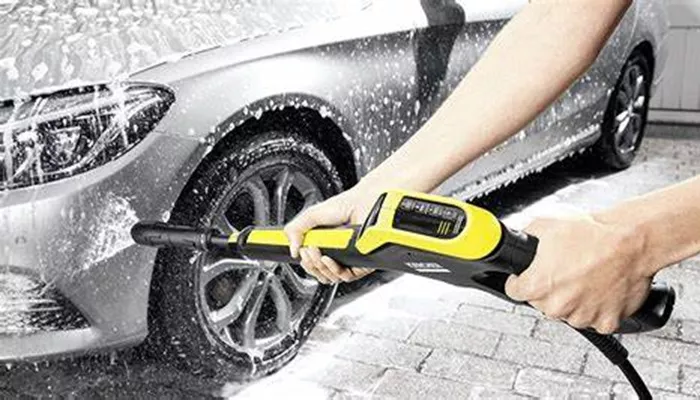Heavy-duty pressure washers are powerful cleaning machines designed to tackle the toughest dirt, grime, and stains. They are commonly used in industrial, commercial, and large residential applications. These washers are essential for cleaning large surfaces like driveways, decks, and building exteriors.
Understanding Pressure Washer Specifications
Pressure washers are classified based on their pressure output, measured in pounds per square inch (PSI), and water flow rate, measured in gallons per minute (GPM). Heavy-duty models typically offer:
- PSI: 2,500 to 4,000
- GPM: 2.5 to 4.0
These specifications allow them to remove stubborn stains and clean large areas efficiently.
Key Components of Heavy-Duty Pressure Washers
Heavy-duty pressure washers consist of several key components:
- Engine or Motor: Powers the washer; can be gas or electric.
- Pump: Generates high-pressure water flow.
- Hose: Carries water from the pump to the nozzle.
- Nozzle: Directs the water stream for cleaning.
Understanding these components helps in selecting the right washer for specific cleaning tasks.
Types of Heavy-Duty Pressure Washers
Gas-Powered Pressure Washers
Gas-powered pressure washers offer high mobility and are suitable for outdoor use. They are ideal for large cleaning tasks like:
- Cleaning driveways and sidewalks
- Washing vehicles and equipment
- Removing graffiti
Advantages:
- High power output
- Portability without the need for electrical outlets
- Suitable for remote locations
Disadvantages:
- Require regular maintenance
- Produce noise and emissions
- Heavier and bulkier
Electric Pressure Washers
Electric pressure washers are quieter and require less maintenance. They are suitable for tasks like:
- Cleaning patios and decks
- Washing windows and siding
- Light vehicle cleaning
Advantages:
- Lower maintenance requirements
- Quieter operation
- Environmentally friendly
Disadvantages:
- Limited mobility due to power cord
- Lower power output compared to gas models
- Dependent on electrical outlets
Hot Water Pressure Washers
Hot water pressure washers use heated water to enhance cleaning efficiency, especially for greasy or oily surfaces. They are commonly used in:
- Industrial cleaning
- Vehicle maintenance
- Food processing facilities
Advantages:
- Effective in removing oil and grease
- Reduces the need for chemical detergents
- Speeds up the cleaning process
Disadvantages:
- Higher cost
- Requires more maintenance
- Heavier and less portable
Cold Water Pressure Washers
Cold water pressure washers are the most common type, suitable for general cleaning tasks. They are ideal for:
- Residential cleaning
- Light commercial use
- Cleaning surfaces without heavy grease
Advantages:
- Lower cost
- Lightweight and portable
- Easy to maintain
Disadvantages:
- Less effective on greasy stains
- May require additional cleaning agents
Choosing the Right Heavy-Duty Pressure Washer
When selecting a heavy-duty pressure washer, consider the following factors:
- Cleaning Task: Determine the type of surface and the level of dirt.
- Power Source: Choose between gas and electric based on mobility needs.
- Water Temperature: Decide between hot and cold water based on the nature of stains.
- Portability: Consider the weight and ease of transport.
- Budget: Balance features with cost.
By evaluating these factors, you can select the most suitable pressure washer for your needs.
Maintenance Tips for Heavy-Duty Pressure Washers
Proper maintenance ensures the longevity and efficiency of your pressure washer:
- Regular Cleaning: Clean the nozzle and hose after each use.
- Engine Maintenance: For gas models, change the oil and check the spark plug regularly.
- Storage: Store the washer in a dry place to prevent rust.
- Winterizing: For cold climates, drain the water and add antifreeze to prevent freezing.
Following these maintenance practices will help keep your pressure washer in optimal condition.
Conclusion
Heavy-duty pressure washers are invaluable tools for tackling challenging cleaning tasks. By understanding the different types and their applications, you can make an informed decision that aligns with your cleaning needs. Regular maintenance will ensure your pressure washer remains a reliable asset for years to come.
Related topics:
- Do You Need a Special Hose for a Pressure Washer?
- What is the Average Price for Deck Power Washing
- Should I Use Soap When Pressure Washing?

